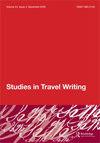山谷失去了它的气氛
Q2 Arts and Humanities
引用次数: 0
摘要
智利诗人Winétt de Rokha(1894–1951)的《山谷失去了气氛》是一部史诗,由四十八首令人惊叹的诗组成,主要是在她与著名诗人丈夫Pablo de Roha穿越拉丁美洲期间创作的。胡安·安东尼奥·里奥斯总统任命他为智利驻美洲文化大使。这两位诗人的大使之旅发生在1944年至1946年,他们的旅行经历了南美洲和中美洲的十九个国家,包括秘鲁、乌拉圭、玻利维亚、哥伦比亚、委内瑞拉、厄瓜多尔、危地马拉、古巴和墨西哥,然后到达美国。杰西卡·塞奎拉(Jessica Sequeira)用西班牙语优美地翻译了这首诗,她敏锐的介绍性文章阐明了这部史诗,这首诗形成了温内特的美国歌曲(canto americano)——“美国”这个词在最初的大陆意义上表示整个美洲。《山谷失去了它的氛围》的主题是拉丁美洲,也就是她的美国。Winétt的第四部也是最后一部诗集,这部作品最初出版于1949年,也就是智利同胞巴勃罗·聂鲁达出版《将军歌》的前一年,这是另一部部分基于亲身旅行的美国史诗,用类似的诗歌语言和类似的政治视角(即共产主义)写的,反对压迫性的社会条件和外国帝国主义/资本主义对拉丁美洲的干预。聂鲁达对英语读者来说并不陌生,而Winétt de Rokha则基本上不为人知。然而,这本新的双语诗集在很大程度上改变了现状。这充分展示了她的诗歌天赋,也证明了她的作品值得英语世界关注。此外,这本书为二十世纪中期的美国旅行文学提供了一个前卫的抒情维度。维特的诗歌以其音乐性、不同寻常的意象、泥土感、尊严和独立于文学传统为特征。为了寻找代表现实的新形式,她的诗歌具有实验性和先锋性,与她创作诗歌时的现代主义时期保持一致。她以一首诗歌前奏拉开了这本书无标题诗歌的旅行序列,其中宣称“山谷失去了它的氛围”/是廉洁的美国人(17),并继续说道:本文章由计算机程序翻译,如有差异,请以英文原文为准。
The Valley Loses Its Atmosphere
The Valley Loses Its Atmosphere by Chilean poet Winétt de Rokha (1894–1951) is an epic comprising forty-eight stunning poems written primarily during her journey across Latin America with her famed poet husband, Pablo de Rokha. He had been named Cultural Ambassador of Chile in the Americas by President Juan Antonio Ríos. The ambassadorial journey of the two poets took place from 1944 to 1946, and their travels took them through nineteen countries in South and Central America—including Peru, Uruguay, Bolivia, Colombia, Venezuela, Ecuador, Guatemala, Cuba, and Mexico—before reaching the United States. Translated beautifully from Spanish by Jessica Sequeira, whose critically astute introductory essay illuminates the epic, the poetry forms Winétt’s canto americano (American song)—“American” in the original continental sense of the word denoting all of the Americas. The subject of The Valley Loses Its Atmosphere is Latin America, that is, her America. Winétt’s fourth and final collection of poetry, this work was originally published in 1949, the year before fellow Chilean Pablo Neruda published his Canto General (General Song), another American epic based in part on firsthand travels, written in a similar poetic language and with a similar political perspective (i.e. Communist) against oppressive social conditions and foreign imperialist/capitalist interventions in Latin America. Neruda is no stranger to English-language readers, whereas Winétt de Rokha remains essentially unknown. This new bilingual book of her verse, however, goes a long way to change the present situation. It shows her poetic genius at full power and proves her work deserves attention in the Anglophone world. Moreover, the book contributes an edgy, lyric dimension to mid-twentieth-century American travel literature. Winétt’s poetry is characterised by its musicality, unusual imagery, earthiness, dignity, and independence from literary tradition. Searching for new forms to represent reality, her poetry is experimental and avant-garde, in keeping with the modernist period when she composed it. She opens the book’s travel sequence of untitled poems with a verse prelude that proclaims “‘The Valley Loses Its Atmosphere’ / is incorruptibly American” (17) and continues:
求助全文
通过发布文献求助,成功后即可免费获取论文全文。
去求助
来源期刊

Studies in Travel Writing
Arts and Humanities-Literature and Literary Theory
CiteScore
0.40
自引率
0.00%
发文量
13
期刊介绍:
Founded in 1997 by Tim Youngs, Studies in Travel Writing is an international, refereed journal dedicated to research on travel texts and to scholarly approaches to them. Unrestricted by period or region of study, the journal allows for specific contexts of travel writing to be established and for the application of a range of scholarly and critical approaches. It welcomes contributions from within, between or across academic disciplines; from senior scholars and from those at the start of their careers. It also publishes original interviews with travel writers, special themed issues, and book reviews.
 求助内容:
求助内容: 应助结果提醒方式:
应助结果提醒方式:


